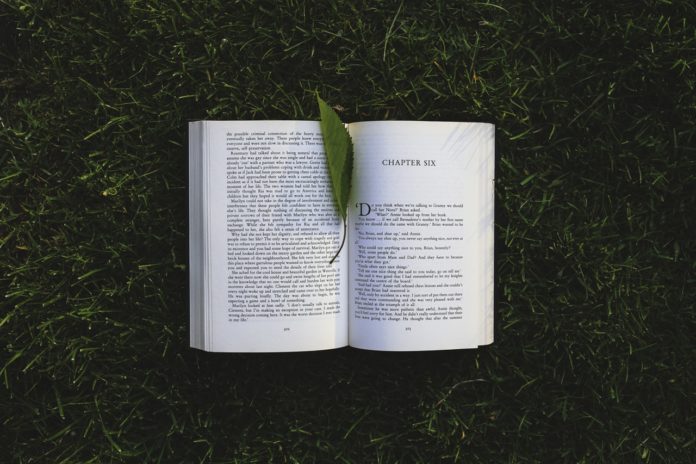French authors have always been celebrated for their intelligence, their prose and the subjects they discuss. If you want to read some of the most known and critically acclaimed 20th century French books, then you should read the 11 books we listed below. These have stood the test of time and are still extremely popular to this day.
Best 20th Century French Books
L’Étranger (Albert Camus)
This 1942 novel by Albert Camus is a great classic. It tells the story of a French Algerian man named Meursault living in North Africa. After his mother dies, he attends her funeral but does not feel grief or sadness and a few days later he is sentenced to die and sent to jail because he killed an Arab man involved in a dispute with one of his friends. The book is divided in two: before and after the murder. Camus explained that: “’In our society, any man who does not weep at his mother’s funeral runs the risk of being sentenced to death.’ I only meant that the hero of my book is condemned because he does not play the game.” Alienation and existentialism are two themes explored in this novel.
Voyage au bout de la nuit (Louis-Ferdinand Céline)
Voyage au bout de la nuit was published in 1932, between the First and Second World War and was Louis-Ferdinand Céline’s first novel. It is a semi-autobiographical novel of Céline’s time in WW1, living in Africa and the United States and becoming a doctor after the war. The antihero Ferdinand Bardamu returns to France after working at the Ford Motor Company in the United States and starts his medical practice in a fictional poor suburb outside Paris. The book discusses human nature, life in general and society in a pessimistic way but with some cynical humour. The author uses a lot of ellipsis’ and hyperboles which influenced the literary writing style in France.
Vendredi ou les Limbes du Pacifique (Michel Tournier)
This 1967 novel by Michel Tournier was awarded the Grand prix du roman de l’Académie française the same year it was published. If you know and love Daniel Defoe’s novel Robinson Crusoe then you’ll probably enjoy the retelling of this story. If you don’t know the story then here it is: Crusoe is shipwrecked on a desert island and tries to control and civilize the nature on the island. An Araucanian (an indigenous inhabitant) appears and keeps Crusoe company. Crusoe decides he would rather stay on the island but Friday, the araucanian, would rather leave the island.
L’Amant (Marguerite Duras)
L’Amant by Marguerite Duras is a semi-autobiographical novel that explores themes of forbidden love, identity, and colonial tensions. Set in French Indochina in the 1920s, the story unfolds through the eyes of a young French girl who embarks on a socially transgressive affair with a wealthy Chinese man. Their relationship defies societal norms, not only because of their age difference but also due to the cultural and racial boundaries that separate them. The novel’s introspective narrative and fragmented structure make it a poignant and enduring work of 20th-century literature.
L’Écume des jours (Boris Vian)
This is a surrealist novel written in 1947. Boris Vian was a real polymath. He was a writer, poet, musician, singer, translator, critic, actor, inventor and engineer but is mostly known now for his writing. Since L’Écume des jours is surrealist, animals talk and inanimate objects have human emotions. The main character Collin is a wealthy man who is desperate for love. He marries a woman named Chloe after meeting her at a party but during their honeymoon, she falls mysteriously ill. She is diagnosed with ‘a water lily in the lung’ (a clear example of surrealism) so she always needs to be surrounded by flowers. The symbolism of Chloe’s disease is often compared to the author’s chronic heart condition.
À la recherche du temps perdu (Marcel Proust)
20th century French books are not the easiest to read… And this one is very philosophical and a little bit cryptic, but it is a true 20th-century classic. The novel was published between 1913 and 1927 and depicts the recollection of the aristocratic narrator’s adult experiences and childhood memories. The most famous part is the narrator’s flashback of him as a young boy, eating some madeleines (French cookies). There are a number of themes explored like: memory, separation anxiety, art, and homosexuality. It is known as one of the most famous books of the 20th century and was also recognized as the ‘modern novel’.
La Condition humaine (André Malraux)
La Condition humaine is a novel written in 1933 written by André Malraux. The plot mostly takes place in Shanghai, China. It is about the failed communist rebellion of 1927. The four main characters: TChen Ta Erh (an assassin), Kyoshi (“Kyo”) Gisors (the leader of the rebellion), Katow (a Russian), and Baron Clappique (a French merchant and smuggler) lived separate lives that through the book are intertwined. TChen Ta Erh becomes obsessed with death after assassinating an authority and becomes a terrorist before killing himself in a failed suicide bomb attempt. The other three characters either die or die ‘figuratively’.
Le Grand Meaulnes (Alain-Fournier)
This 1913 novel by Alain Fournier is his only novel since he was killed in the First World War. It is a 15-year-old boy named François Seurel who narrates the story of his friendship with Augustin Meaulnes. Meaulnes is a typical romantic, he is looking for Yvonne, a girl he meets at a costume party he stumbles upon. He becomes reckless, impulsive and acts like a hero to find this girl again. After a long period of time, the narrator and friend of Meaulnes finds Yvonne and reunited the two together. They were both in love with each other but after they marry, a few unfortunate events that end their time together.
Le Deuxième Sexe (Simone de Beauvoir)
This book is not a novel but it is a must-read. Simone de Beauvoir was a political activist and feminist who fought for women’s rights. She is said to be one of the women who started the second-wave feminism. This book was written in 1949 right after the Second World War. This book describes how women have been treated throughout history. She starts with the creation of woman and goes from century to century explaining women’s subordination. When the book was published, the Vatican added it to its List of Prohibited Books. Beauvoir wrote this book to express that “a woman’s situation, still, even today prevents her from exploring the world’s basic problems.”
L’Oeuvre au noir (Marguerite Yourcenar)
Marguerite Yourcenar wrote this novel in 1968 and it was automatically critically acclaimed and won the Prix Femina in 1968. The story takes place in Bruges during the Renaissance. Zeno, the protagonist, is an illegitimate son who becomes a physician, philosopher and scientist because he is born in a rich family. He ends his priesthood to search for truth and seeks knowledge. The Renaissance Era is known as a booming time for arts, science and capitalism and Zeno is really portrayed like a real Renaissance Man who unfortunately gets a sometimes dangerous reputation for his forward thinking.
Les Faux-monnayeurs (André Gide)
Les Faux-monnayeurs is a 1925 novel written by André Gide and is known as a precursor of the ‘nouveau roman’. The story revolves around many characters (you’ll almost need a cheat sheet to remember them all) and their intertwined lives. One of the characters, Édouard (the author’s alter ego) is writing a book with the same title but the plot mostly revolves around Bernard, a young man. There is an omniscient narrator who sometimes shares its opinion on the characters and addresses the reader directly. There are many homosexual characters in the novel, which unfortunately meant that when it was first received, there were some prejudices against the book.
Hopefully, you found something to read amongst these 20th century French books. Do you have a favorite French book? Something classic that you would recommend to a friend? If you’re more into graphic novels, we made a list of classic French graphic novels.











